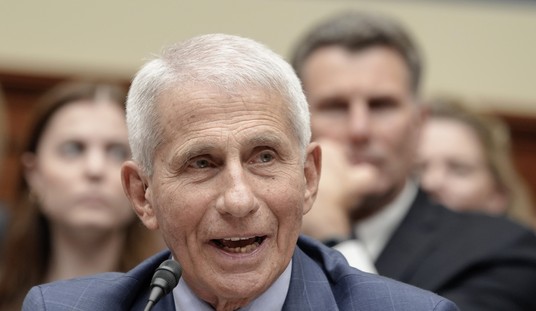Monday marked the one-year anniversary of the October 7th Hamas terrorist attacks on Israel. Over 1,200 Israelis– mostly Jews and even 46 Americans–were murdered. Not since the Holocaust has such blatant evil been perpetrated against Jews.
Since last October 7th, anti-Semitic attacks have risen nearly 200 percent in the United States. This is unconscionable but, sadly, not surprising. Cowardly universities are actively coddling, kowtowing to, and even encouraging Hamas supporters to harass Jewish students. Nor does it help when fellow journalists elevate individuals like Ta-Nehisi Coates who publish books that dehumanize Israel, the Jewish homeland, and her people. Equally problematic is knowing 20 percent of young Americans aged 18-to-29—or one in five individuals—deny the Holocaust ever happened.
Where did our country - and the world - go wrong here?
While vacationing in Lithuania last month, I noticed an open call for journalists to attend the Auschwitz-Birkenau State Museum’s annual "History, Memory and Responsibility" Journalism Seminar. I immediately applied and soon received word of my acceptance into the program. Given the state of affairs in our country, I felt obligated to attend. How could I, an American with Jewish ancestry, not participate? It was an easy yes for me.
Earlier this week, I journeyed from Northern Virginia to Krakow, Poland, and took a train to Oswiecim - the Polish town that Nazis occupied and converted into one of the worst concentration and extermination camps out there: Auschwitz-Birkenau, where 1.1 million individuals, namely Jews, perished.
Recommended
Our visit consisted of tours of Auschwitz I (concentration camp) and Auschwitz-Birkenau II (concentration and extermination camps). Unlike typical visitors, our group was privileged to hear from museum scholars and conservators working to preserve items at the memorial today.
Before touring the former camps, we heard from Dr. Piotr Setkiewicz - the director of the Centre for Research at the museum. One of his slides particularly stuck with me. It involved Auschwitz victim Honorata Gach, who was arrested and later killed because she knew her husband harbored and owned firearms.
Our visit to the memorial also coincided with another October 7th anniversary: the Sonderkommando Revolt of October 7, 1944, at Crematorium IV at Birkenau. The Sonderkommando were Jewish prisoners who were forced to remove victims’ bodies from gas chambers and burn them in crematoria. They organized the only known armed revolt at the camp. Tragically, 450 of these prisoners were murdered. That was harrowing to see firsthand.
Equally chilling was walking into Block 11, where the Nazis first experimented with Zyklon-B gas used to murder Auschwitz victims in gas chambers. To also see where Jews were selected and later killed in gas chambers won’t ever escape my mind.
When we visited a Yad Vashem exhibit in Block 27, it featured the Book of Names. I looked to see how many Hoffmans were murdered and was astonished to find pages upon pages of victims bearing my last name. None of my immediate Jewish family members perished in the Holocaust. But what if some had been distant relatives? I’ll likely never know. What I do know is if my paternal grandparents had not been sent to Uzbekistan and Kazakhstan during World War II, they would have likely met this same tragic fate as them. And I wouldn’t be writing this column today. I shudder thinking about this.
How people can deny the Holocaust - especially the atrocities that occurred at Auschwitz-Birkenau - is beyond me. There is verifiable proof with victims, ruins, artifacts, and documents concretely confirming this tragedy happened.
My experience at Auschwitz-Birkenau greatly parallels Niall Ferguson’s recent visit to my dad’s hometown of Vilnius, Lithuania. My dad was born in Soviet-occupied Vilnius, but always mentioned it being the “Jerusalem of the North.” Before World War II, Lithuania was home to over 160,000 Jews who comprised 7 percent of the Lithuanian population. Ferguson reflected on his visit to Lithuania, writing, “To understand Israel today, you must first understand what befell the Jews of Europe.” Over 90 percent of Lithuania’s Jews would eventually be wiped out during Nazi occupation.
He added, “It was here [in Paneriai, Lithuania] that the Nazis first systematically murdered women and children as well as men. Most victims were marched from the city to Ponary and stripped before being shot. Gold teeth were yanked out. The killing squads piled the bodies into six large pits that had been excavated for oil storage tanks.”
Everyone learns about the Holocaust differently. I learned from my parents, teachers, and direct testimony from several Holocaust survivors. My parents learned from their parents–my grandparents– about neighbors disappearing and never returning home. They even recounted meeting some survivors and those who hid in basements during the wartime period.
This upcoming January 27th, 2025, the Auschwitz-Birkenau Memorial will commemorate 80 years since the former camp was liberated. As we reflect on the anniversary, it’s a solemn reminder that anti-Semitism must be combatted and the refrain “Never again” must endure.
I encourage all journalists to apply and attend this impactful seminar. I’m grateful I did.

























Join the conversation as a VIP Member